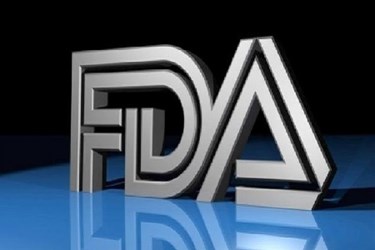FDA News Round-Up: Novartis, Bristol-Myers, Jazz, And More

By Trisha Gladd, Editor, Life Science Connect

What FDA news did you miss for the week of September 28th to October 2nd?
Sandoz Receives FDA Acceptance For Its Regulatory Submission For Enbrel Biosimilar
Coming off of a legislative victory over the sale of Zarxio, Sandoz, a Novartis company, has made another step into the biosimilar market with an acceptance from the FDA to review its biosimilar copy of Amgen’s Enbrel. This treatment for autoimmune diseases reached sales of $4 billion in the United States in 2014. Its total global sales were $9 billion, making it the world’s fifth-biggest selling drug for that year. The proposal for the biosimilar, etanercept, seeks to receive approval for all indications included in the reference product’s label. Sandoz is confident that all evidence submitted will provide the confirmation necessary to show the biosimilar is essentially the same as Enbrel.
Novo-Nordisk Gains Long-Awaited Approval For Two Diabetes Drugs
After initially being disapproved two years ago, Novo Nordisk’s Tresiba has been approved in the U.S. The treatment for diabetes mellitus in adults was approved along with another Novo Nordisk drug, Ryzodeg, which is also used for the treatment of diabetes. Acting off of the complete response letter (CRL)from the FDA in 2013, both drugs were put through four 26-week then two 52-week-long controlled clinical trials on 2,702 patients. The company then submitted these results to the FDA as part of a Class II resubmission of the drugs’ NDAs. In comparison to the company’s long-acting insulin, Levemir, which lasts for 18 to 24 hours, Tresiba can last up to 42 hours.
Bristol-Myers Drug Combo For Melanoma Gets FDA Thumbs Up
A combination of two Bristol-Myers(BMS) immunoncology drugs, Opdivo and Yervoy, received approval from the FDA. This marks the first time a combination of two drugs that help the immune system has been approved for use together. The treatment is expected to cost $256,000 a year. The combo received accelerated approval after a clinical trial demonstrated more patients responded to both drugs better than when just receiving one (Yervoy). However, BMS must be able to show those results again from a larger, ongoing Phase 3 study. BMS is also testing to determine if the combo could be used for the treatment of kidney and lung cancer.
Priority Review Of Jazz NDA For Defibrotide Accepted By FDA
The FDA has announced its plans to accept Jazz Pharmaceuticals’ NDA filing for Defibrotide with Priority Review. Data from three clinical studies of the drug were included in the NDA, as well as a retrospective review of data from the Center for International Blood and Marrow Transplant. Defibrotide is used for the treatment of hepatic veno-occlusive (VOD) with multi-organ dysfunction (MOD) following hematopoietic stem-cell transplantation (HSCT). The expected completion date for the review is March 16, 2016.
Orphan Drug Designations
REGENXBIO’s RGX-111 has been named an orphan drug for the treatment of mucopolysaccharidosis type I (MPS I). It is estimated that over 1,000 people are born with MPS I each year, which is a rare neurodegenerative disease caused by deficiency of the a-I-iduronidase (IDUA) gene. REGENXBIO plans to file an IND for RGX-111 in the first half of 2016.
Blueprint Medicine’s BLU-554 was granted orphan drug designation for hepatocellular carcinoma (HCC), which accounts for most liver cancers and the fastest-rising cause of cancer-related deaths worldwide. BLU-554, a selective inhibitor of fibroblast growth factor receptor 4 (FGFR4), is currently undergoing evaluation in a Phase 1 clinical trial for patients with advanced HCC and cholangiocarcinoma. In preclinical models of HCC driven by aberrant FGFR4 signaling, BLU-554 demonstrated significant anti-tumor activity.
